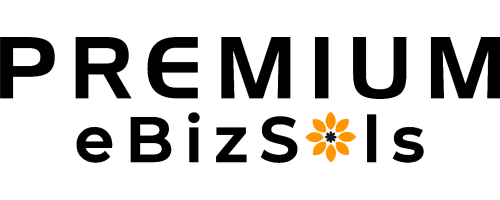Web development and data science are two distinct yet highly sought-after fields in technology. While both have unique characteristics and career opportunities, they cater to different interests and skill sets. This article will delve into the critical aspects of web development and data science, highlighting their differences, similarities, and the potential paths one can take in each field.
Introduction
Technology has become an integral part of our lives in today’s digital age. Web development and data science are crucial in shaping the digital landscape and driving innovation. Understanding the nuances of these fields can help individuals make informed decisions about their career paths and areas of specialization.
What is Web Development?
Web development involves creating, designing, and maintaining websites and web applications. It encompasses various aspects such as front-end, back-end, and full-stack development. Front-end development focuses on the user interface and experience, while back-end development deals with server-side programming and database management. The full-stack product combines both front-end and back-end development skills.
What is Data Science?
Data science is an interdisciplinary field that uses scientific methods, processes, algorithms, and systems to extract insights and knowledge from structured and unstructured data. It combines elements of mathematics, statistics, programming, and domain expertise to uncover patterns, make predictions, and solve complex problems. Data scientists leverage various tools and techniques to analyze large datasets and derive meaningful conclusions.
Key Differences Between Web Development and Data Science
While web development and data science are part of the broader technology industry, there are fundamental differences between the two fields.
Focus and Purpose
Web development primarily focuses on creating functional and visually appealing websites and web applications. It involves working with programming languages like HTML, CSS, and JavaScript to build interactive user interfaces. The goal is to provide an engaging digital experience for users.
On the other hand, data science revolves around data analysis, modeling, and predictive analytics. Data scientists work with large datasets, utilize statistical techniques, and employ machine learning algorithms to derive valuable insights. The objective is to make data-driven decisions and solve complex problems based on the analysis.
Skill Requirements
Web development requires proficiency in programming languages such as HTML, CSS, and JavaScript and frameworks like React or Angular. Developers must understand design principles, user experience, and responsive web design. They must also stay updated with the latest web development trends and technologies.
Data science demands a strong foundation in mathematics, statistics, and programming languages such as Python or R. Data scientists should be well-versed in data manipulation, statistical analysis, and machine learning algorithms. Additionally, they need data visualization and communication expertise to present their findings effectively.
Output and Deliverables
In web development, the output is tangible and visible to users. Developers create websites or web applications that users can interact with directly. The deliverables include functional web pages, responsive designs, and optimized user experiences.
In data science, the output is often intangible and used for decision-making or predictive purposes. Data scientists generate models, reports, and insights based on their analysis. These outputs help organizations make data-driven decisions, optimize processes, or develop predictive models.
Overlapping Skills and Techniques
Although web development and data science differ in their core focus, there are areas of overlap where professionals from both fields can utilize similar skills and techniques. These overlapping skills include:
- Programming: Proficiency in programming languages like Python, JavaScript, or SQL is beneficial in both fields.
- Problem-Solving: Both web developers and data scientists encounter complex problems and must apply analytical thinking to find practical solutions.
- Data Visualization: Web developers can use data visualization techniques to present information in an engaging and user-friendly manner. Data scientists leverage data visualization to communicate insights effectively.
Career Opportunities in Web Development
Web development offers various career opportunities for individuals with a suitable skill set and expertise. Some popular career paths in web development include:
- Front-end Developer: Specializing in creating visually appealing user interfaces using HTML, CSS, and JavaScript.
- Back-end Developer: Focusing on server-side programming, database management, and ensuring smooth functionality of web applications.
- Full-stack Developer: Combining front-end and back-end development skills to handle client- and server-side aspects.
- UI/UX Designer: Designing user interfaces and optimizing user experiences to create intuitive and engaging websites.
Career Opportunities in Data Science
Data science is a rapidly growing field with immense career potential. Here are some career paths within data science:
- Data Analyst: Responsible for analyzing and interpreting data to uncover patterns, trends, and insights.
- Machine Learning Engineer: Building and deploying machine learning models to solve complex problems and automate processes.
- Data Engineer: Designing and managing data infrastructure to ensure efficient storage, retrieval, and processing of large datasets.
- Data Scientist: Employ statistical techniques, machine learning algorithms, and domain knowledge to extract insights and make data-driven decisions.
Which Field Should You Choose?
Choosing between web development and data science depends on your interests, skills, and career goals. Consider the following factors when making a decision:
- Passion and Interest: Determine whether you are more drawn to creating interactive websites and web applications or uncovering insights from data.
- Skill Set: Assess your skills and identify which field aligns better with your strengths. Consider the programming languages and techniques you enjoy working with.
- Career Outlook: Research the current and future demand for professionals in both fields. Evaluate the growth potential, salary prospects, and job market trends.
Remember that your choice is not limited to one field forever. Many professionals transition between web development and data science or explore hybrid roles that combine aspects of both areas.
Conclusion
Web development and data science are two exciting and ever-evolving fields within the technology industry. Both offer promising career paths and opportunities for individuals passionate about creating digital experiences or leveraging data to drive insights and innovation. By understanding the key differences, overlapping skills, and career prospects in each field, you can decide which path to pursue.
FAQs
Is web development a subset of data science?
No, web development and data science are distinct fields. Web development focuses on creating websites and web applications, while data science revolves around data analysis, modeling, and predictive analytics.
Can I become a web developer and a data scientist at the same time?
While it’s challenging to specialize in both fields simultaneously, some professionals have skills and experience in web development and data science. It may require dedicated effort and continuous learning to excel in both domains.
Are there any prerequisites to learning web development or data science?
There are no strict prerequisites for learning web development or data science. However, a basic understanding of programming concepts and logic will benefit both fields.
Which field has better career prospects: web development or data science?
Both fields offer promising career prospects, but the choice depends on your interests, skills, and long-term goals. Research the market demand and growth opportunities in your desired location to make an informed decision.
How can I transition from web development to data science?
Transitioning from web development to data science may require acquiring additional mathematics, statistics, and machine learning skills and knowledge. Taking online courses or pursuing a degree in data science can help facilitate the transition.


